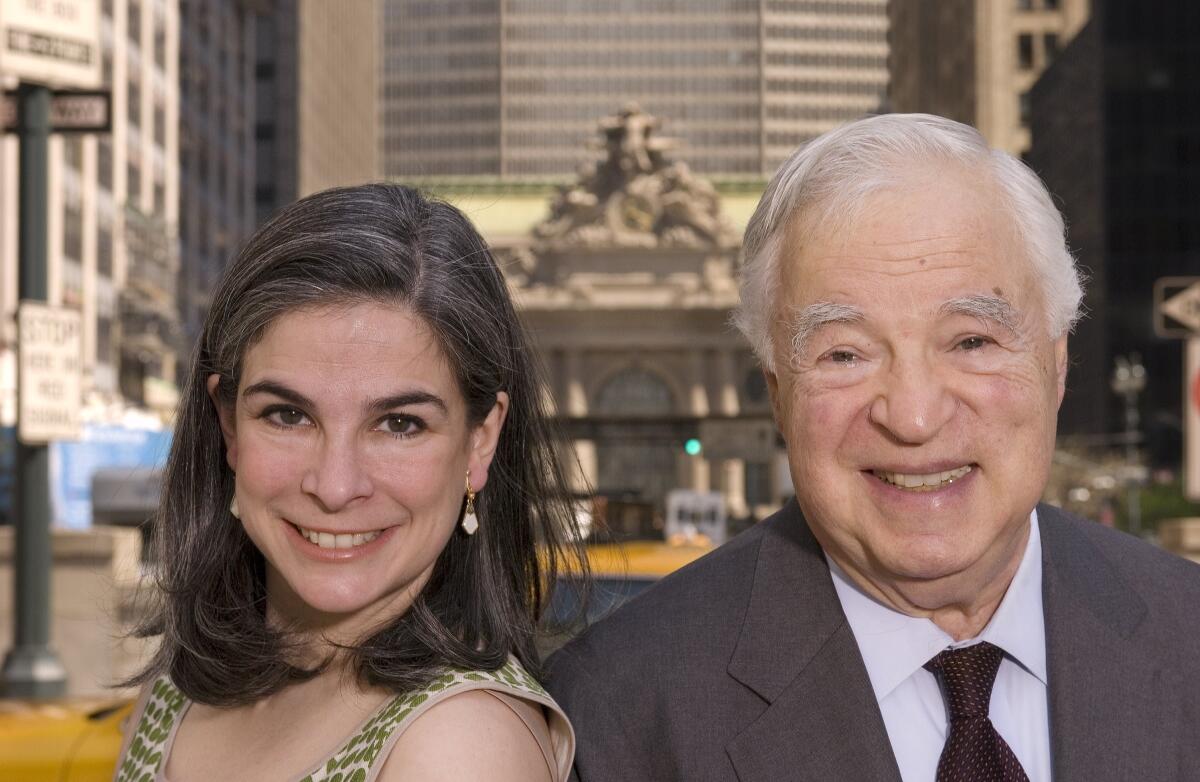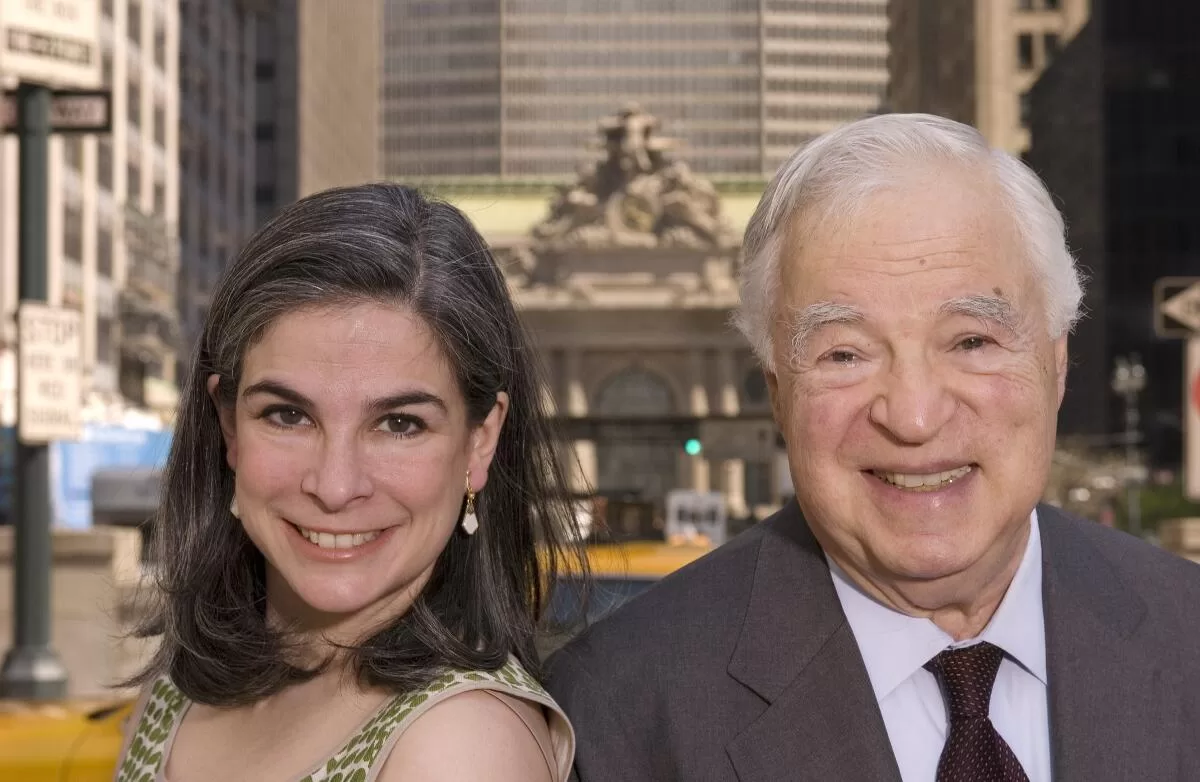The president was Eisenhower. The Dodgers belonged to Brooklyn. The cost of a Los Angeles-London round-trip flight was $720 — a staggering amount in 1956. Yet in his off hours, a young Manhattan lawyer named Arthur Frommer pressed ahead with a wild idea.
As a U.S. Army serviceman in postwar Europe a few years before, Frommer had seen the wonders of the continent and the purchasing power of a dollar abroad. He realized that many Americans could do the same, if only they knew where to go and how to pinch pennies. He’d hatched the idea of a guide, tested it by self-publishing a booklet for servicemen abroad and quickly sold every copy.
So Frommer tried an even bolder stroke. In 1957, he published “Europe on 5 Dollars a Day” and kicked off a new era in travel, persuading legions of middle-class Americans that the art, architecture and cuisine of London, Paris and Rome weren’t just for aristocrats.
The first money-saving rule decreed in that guide: “Never specify that you want a private bath with your hotel room.”
As advances in technology and deregulation cut the cost of transatlantic flights in succeeding years and decades, Frommer’s words found a growing audience. By 1961 he had left lawyering to focus full-time on writing about affordable travel. By 1962, he was hiring other writers to produce guides like “Los Angeles, San Francisco and Las Vegas on $5 and $10 a Day.”
“I held onto the ‘5 Dollars’ [in the book’s title] until around 1964,” Frommer told me once. “I remember the first year that I had to change it to $10, I was filled with the most horrible feeling of dread. … I thought, ‘Well, that’s the end of it.’”
Far from it. Before his death at home in New York on Monday at 95, Frommer built and sold a guidebook empire, ran a tour company, created and sold a magazine, started a travel website, radio show and podcast, bought back his guidebook empire and tutored generations of travelers and travel writers.
Without Frommer’s work as a pioneer, it’s hard to imagine the Lonely Planet guidebooks (founded by Tony and Maureen Wheeler in 1973) or the career of Rick Steves, the teacher turned publisher turned public television fixture whose first edition of “Europe Through the Back Door” came out in 1980.
“Arthur’s work gave people like my parents the confidence to travel independently through Europe back when that was a new thing for middle-class Americans,” Steves wrote in a 2013 blog post. “You could make a case that without Arthur Frommer opening that door for my family in 1969, I’d still be teaching piano lessons.”

Arthur Frommer, right, and his daughter, Pauline Frommer, photographed in New York in 2007.
(Jim Cooper / Associated Press)
Frommer’s partner in much of this work has been his daughter Pauline, co-president of FrommerMedia and editorial director of Frommer’s Guidebooks. Throughout his life, Pauline Frommer wrote, her father “democratized travel, showing average Americans how anyone can afford to travel widely and better understand the world.”
As the industry grew and changed, Frommer endured and adapted, speaking with the aplomb of a litigator and the enthusiasm of a newbie, yet also the skepticism of one who has seen plenty. He was in the business of selling travel, but Frommer saw time abroad as a chance to learn, to be humbled, to become a better global neighbor. He had little patience for people and companies that treated travel as a trapping of wealth.
This came through in his syndicated budget travel columns (which ran in the L.A. Times from 1998 to 2007) and appearances on broadcasts and in person at travel shows and conferences. By the time I met him in the mid-1990s, his signature title had grown to “$50 a Day.” (Frommer abandoned that format after it reached $95 in 2007.)
In one of our first conversations, Frommer told me how Pauline had just gotten married. Planning the honeymoon, the proud father said, she had booked a room in the rural uplands of Bali, $12 a night, shared bathroom down the hall.

Arthur and Pauline prepare for “The Travel Show,” their weekly call-in radio show, in 2012.
(Seth Wenig / Associated Press)
Over 25 years, we spoke many times, covering traveler’s checks, the role of travel agents, the rise of the cruise industry, the ethics of travel boycotts, the scourge of hidden fees, the thrill of finding someplace new. Always, I came away impressed by his sense of mission.
He wasn’t the only early American guidebook publisher. He wasn’t even the only one with a budget focus. But his voice cut through and it wasn’t always cheerful. In 1988, Frommer warned that “most of the vacation journeys undertaken by Americans were trivial and bland, devoid of important content, cheaply commercial, and unworthy of our better instincts and ideals.” In a bid to change that, he published “Arthur Frommer’s New World of Travel,” stressing “alternative vacations that will change your life,” including educational programs, volunteer work and household-to-household exchanges, ideas he continued to champion for decades.
In 2009, when my L.A. Times colleague Susan Spano asked Frommer if he was still a budget traveler, he had a typically forceful answer ready.
“I have always felt that the less you spend, the more you enjoy,” he said. “The moment you put yourself in a first-class hotel you become walled-off from life, in a world devoted to creature comforts. High-end hotels offer the imaginary experience of living like an aristocrat. But when you go to sleep, you no longer know whether you’re in a one-star or a five-star hotel. Big rooms and amenities are all sheer nonsense. Go to a guesthouse. It’s much more fun.”
By 2013, Frommer was in his 80s. Instead of retiring, he bought back the rights to his guidebook series, which endures, covering destinations worldwide with paperback guides and e-books. “Fifty-seven years later, I’m returning to what I originally did,” Frommer said. “I’m probably the oldest fledgling publisher in world history.”
The grand old man of guidebooks may be gone, but many of us will be following his lead for a good long time.
